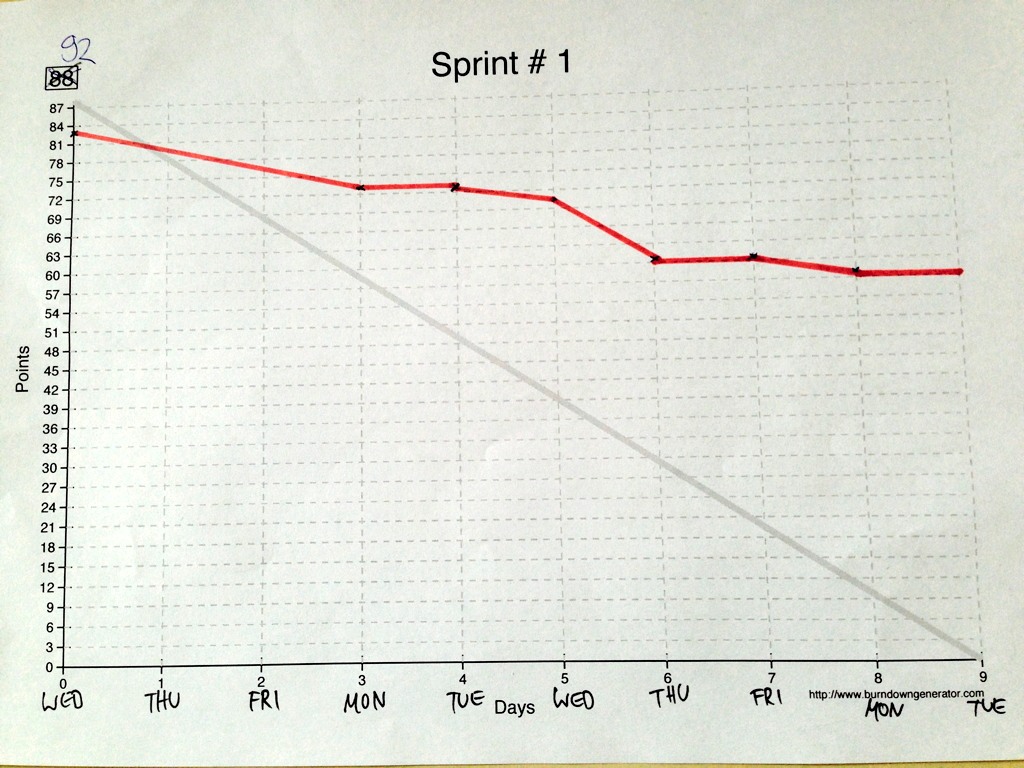Age of Product’s Food for Thought of November 8th, 2015 covers: Y Combinator (Economist reporting and Sam Altman’s startup playbook), artificial intelligence and mass unemployment, unhealthy Scrum obsessions, Tim Ferriss’ How to say ‘No’, e-commerce trends and the black box of product management.
(via theguardian): Artificial intelligence: ‘Homo sapiens will be split into a handful of gods and the rest of us’

A new report suggests that the marriage of AI and robotics could replace so many jobs that the era of mass employment could come to an end
(via Age of Product): Scrum: The Obsession With Commitment Matching Velocity

There is an unhealthy management obsession with matching Scrum teams' commitments with their respective velocities to build an opinion on whether Scrum is working well.
(via The Economist): Y Combinator, the X Factor of tech
In late 2008 three young men applied to Y Combinator (YC), a school for startups, looking for help with their tiny firm, AirBed & Breakfast, a website that helped people rent out inflatable mattresses in their living-rooms during conferences.
: Startup Playbook
We spend a lot of time advising startups. Though one-on-one advice will always be crucial, we thought it might help us scale Y Combinator if we could distill the most generalizable parts of this advice into a sort of playbook we could give YC and YC Fellowship companies. Then we thought we should just give it to everyone.
: How to Say “No” When It Matters Most (or “Why I’m Taking a Long ‘Startup Vacation’”)
This post will attempt to explain how I think about investing, overcoming “fear of missing out” (FOMO), and otherwise reducing anxiety. It’s also about how to kill the golden goose, when the goose is no longer serving you.
(via Medium): The Black Box of Product Management
PMs get sad when you ask them why they exist. There is a rite of passage in the product management world, where all PMs have experienced being asked: “What does a product manager do, anyway?”
Product Management is the by-product of two exponential forces being exerted on a company.
- Speed: The company exists in an industry where the rate of technological innovation is accelerating
- Scale: Growth in the company’s product, organization, and customers are creating complexity
: The Artist Formerly Known as Ecommerce
I feel like investors and entrepreneurs are doing themselves a disservice by bucketing all types of companies that sell stuff online into the same 15-year-old catch-all category of “ecommerce”.
Here how I breakdown the Artist Formerly Known as ecommerce:
- Brandtech – The rare brand that can change an old stodgy industry
- Modern merchandising – New user entry points revolutionizing when & how we shop
- Human-assisted commerce – New forms of customer service
- Physical products that combine atoms and bits – Some of you may know this as IoT
: We’re Just Not That Into You — Surviving This And Other Letdowns From Potential Customers
The rule of thumb is that you should have three to five times the prospects in your pipeline for every deal you want to close. Pursue multiple options. Parallel process. Don’t get fixated on the deal that’s going to be perfect and solve all your problems.

